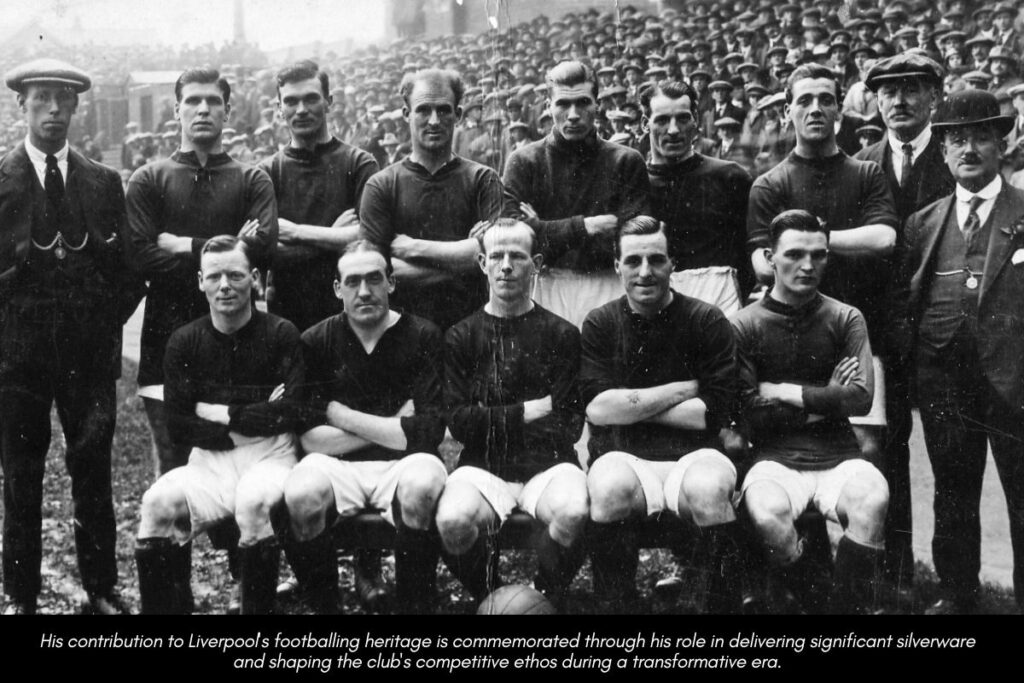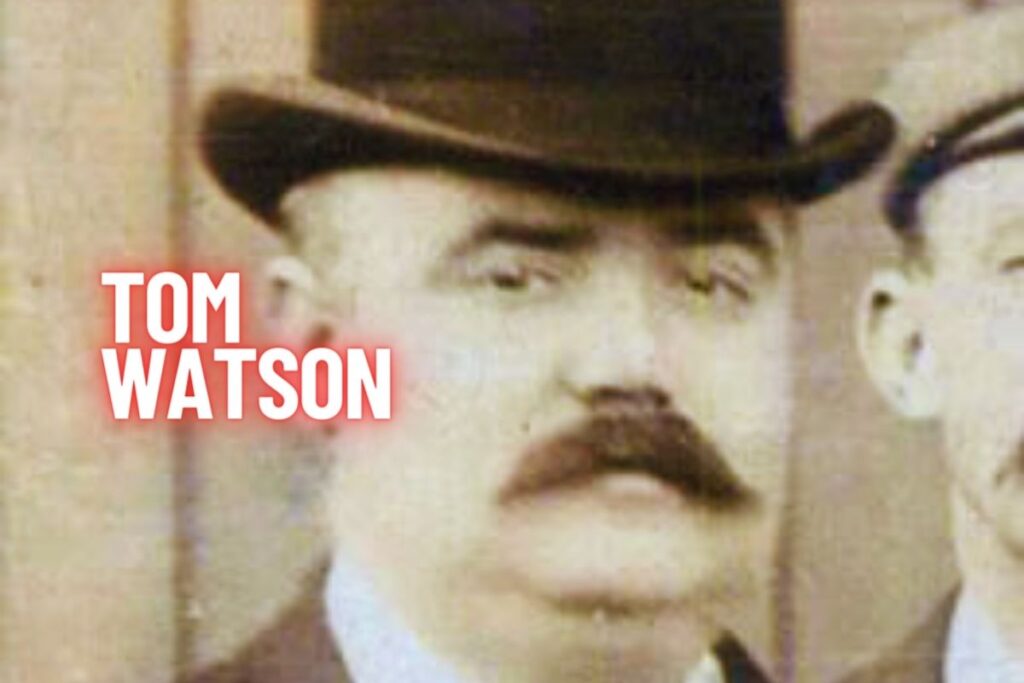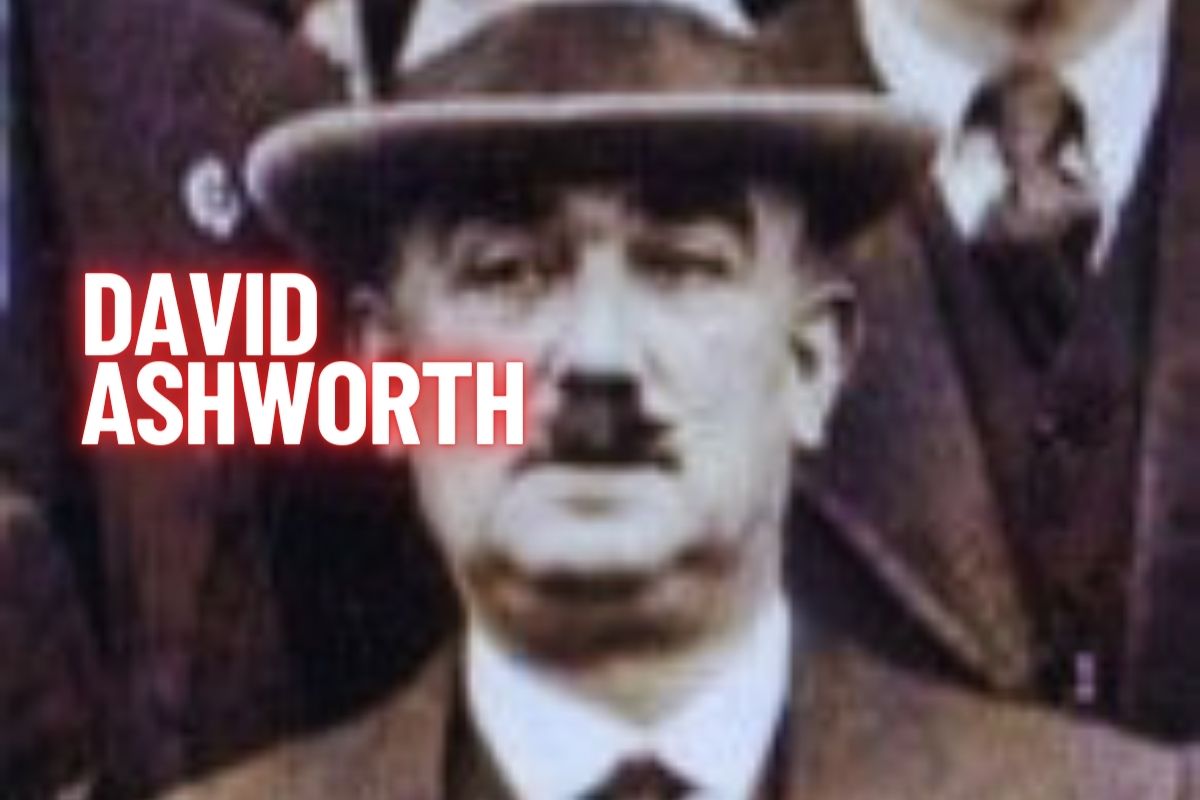David Ashworth, a name etched in the annals of English football, left an indelible mark during his brief yet impactful tenure at Liverpool FC. Arriving at Anfield in 1919 amidst a turbulent season, Ashworth swiftly transformed the Reds’ fortunes, steering them to a commendable fourth-place finish. His crowning achievement came in 1922 when he masterminded Liverpool’s third First Division title, showcasing a blend of tactical acumen and team cohesion. Yet, just as his managerial prowess seemed poised for further glory, Ashworth’s unexpected departure in 1923 for Oldham Athletic left fans and pundits alike perplexed. Despite the abrupt departure, his legacy endures as a pivotal figure in Liverpool’s early 20th-century success story, leaving behind a trail of achievements and unanswered questions.
Early Life and Career
David Ashworth, born on 2 June 1867, embarked on his football journey with a career that spanned both playing and managerial roles. Initially recognized as a football referee, Ashworth transitioned into management with Oldham Athletic in 1906, where he spent eight fruitful years. His adept leadership saw Oldham rise in prominence before he moved to Stockport County in 1914, guiding them through the challenges of the First World War.
In 1920, Ashworth’s managerial prowess attracted Liverpool FC, where he assumed the helm during a period of rebuilding. Taking charge midway through a turbulent season, Ashworth steadied Liverpool’s ship and guided them to a respectable fourth-place finish in his inaugural campaign. Known for his tactical astuteness and ability to foster a cohesive team environment, Ashworth’s crowning achievement at Liverpool came in the 1921-1922 season when he secured the club’s third First Division title.
However, Ashworth’s tenure at Liverpool was unexpectedly cut short in February 1923 when he made a surprising return to Oldham Athletic, leaving behind a team poised for successive triumphs. His departure remains shrouded in mystery, yet his impact on Liverpool’s early successes remains a testament to his managerial prowess and enduring legacy in English football history.
Achievements and Honours
David Ashworth’s managerial career is highlighted by his significant achievement with Liverpool FC, clinching the Football League First Division title in the 1921-1922 season. This triumph marked Liverpool’s third league championship and solidified Ashworth’s place in the club’s history as a successful manager during its early 20th-century rise to prominence.

Ashworth’s tenure at Liverpool was characterized by his ability to forge a resilient and competitive team, guided by a strong defensive strategy and tactical discipline. His leadership was instrumental in navigating the challenges of English football, steering Liverpool towards consistent performances and ultimately securing the league title. While his departure from Liverpool in 1923 remains a point of intrigue, Ashworth’s legacy endures as one of the managers who laid the groundwork for future successes at Anfield Stadium. His contribution to Liverpool’s footballing heritage is commemorated through his role in delivering significant silverware and shaping the club’s competitive ethos during a transformative era.
Managers Before David Ashworth
Before David Ashworth’s tenure at Liverpool FC, the managerial landscape at the club was varied and marked by several influential figures who laid the foundation for future successes. One notable predecessor was George Patterson, who served as a caretaker manager before Ashworth’s arrival in December 1919. Patterson’s brief stint helped stabilize the team during a challenging period, setting the stage for Ashworth to take over and implement his strategies.
Before Patterson, Liverpool had experienced a string of managerial changes. One significant figure was Tom Watson, Liverpool’s longest-serving manager, who led the club to its first two league titles in 1901 and 1906. Watson’s legacy as a pioneering manager set high standards for subsequent leaders, emphasizing defensive solidity and tactical discipline. Before Watson, the club saw managers like John McKenna, who played a pivotal role in Liverpool’s formation and early years. McKenna’s influence extended beyond managerial duties, shaping the club’s identity and organizational structure during its formative years.

Each manager before David Ashworth contributed uniquely to Liverpool’s evolution, from establishing competitive foundations to achieving notable successes in domestic competitions. Their collective efforts laid the groundwork for Ashworth’s tenure, during which he would further enhance Liverpool’s reputation as a formidable force in English football.
Leaving Liverpool FC
David Ashworth’s departure from Liverpool amid the 1922-1923 season marked a curious twist in his managerial career. Despite leading the Reds to the top of the table early on, speculation began to swirl about his return to Oldham Athletic, his former club grappling with relegation. Conflicting reports surfaced in the press, with Ashworth initially denying any move, only for subsequent announcements indicating otherwise.
Ultimately, Ashworth did leave Liverpool, and his first match back in charge of Oldham was a poignant return to Anfield, ending in a 2-1 defeat on Boxing Day 1922. A caretaker managed the team temporarily until Matt McQueen was appointed as the permanent replacement. Despite the managerial upheaval, Liverpool continued their strong form and clinched the league title that season. However, Ashworth’s return to Oldham did not yield success, as the club was relegated. His subsequent stints at Manchester City and Walsall were similarly unremarkable, leading to roles outside England managing Caernarfon and Llanelli, followed by a scouting position at Blackpool.
David Ashworth passed away in 1947 at the age of 79, leaving behind a legacy that includes guiding Liverpool to two league titles and navigating significant challenges in English football management.
Conclusion
David Ashworth’s managerial journey was marked by highs and unexpected turns, notably his pivotal role in Liverpool’s league triumphs despite his abrupt departure mid-season. His decision to return to Oldham Athletic, albeit unsuccessful, underscored his penchant for challenges and affinity for his former club. Ashworth’s legacy extends beyond his achievements on the pitch; it reflects resilience in navigating managerial transitions and dedication to football despite setbacks. His contributions to Liverpool, steering them to their early successes, remain etched in the club’s history. Beyond England, his tenure at various clubs and scouting roles highlighted his enduring passion for the sport. David Ashworth’s life encapsulates a journey of commitment, achievement, and enduring legacy in football management.
In our next article, we’ll delve into the dynamic career of Watt McQueen, exploring his influential role in shaping football’s landscape with his strategic prowess and enduring impact.
Read all other posts on David Ashworth
Find the Latest News on Player Ratings | Transfers | Prematch | Postmatch
Stay tuned for more updates on Liverpool FC Times and Stories. Your thoughts are always welcome in the comments section. Thank you for your continued support!
YNWA (You’ll Never Walk Alone)!
The Liverpool FC Times Team
LiverpoolFCTimes.com
